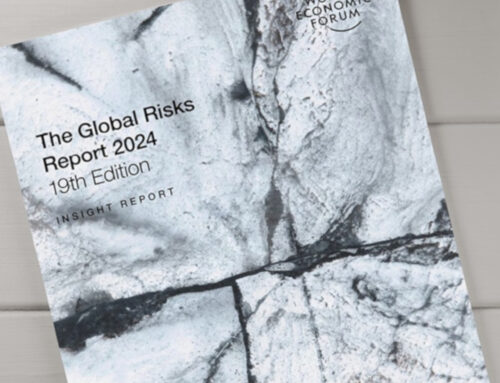

The Democratic and Republican Political Conventions
Share this
The Democratic National Convention wrapped up last night with former Vice President Joe Biden delivering his formal acceptance speech after the party officially chose him and Senator Kamala Harris to challenge for control of the White House in November’s elections. Vice President Biden capped a week of virtual events aimed at drawing a contrast between his decades-long career in public life with what Democrats characterized as President Trump’s ill-suited leadership in the midst of the range of challenges we face.
Given the unprecedented nature of holding a convention virtually, the DNC innovated new elements for presentation value. Among the highlights of the week was the “Roll Call Across America” in which short clips from 57 states and territories announced how delegates were awarded. The Wall Street Journal described what is “normally a shouty, raucous affair” being “transformed into a sort of postcards-from-America montage.” In addition to politicians and public figures, Democrats attempted to incorporate clips from people across the country. It was reported that, according to a convention spokesperson, an invitation for these clips yielded 1,000+ submissions.
In its programming, the Democratic party was projecting a broad coalition, both within their party and in including a handful of Republican voices supportive of Vice President Biden. Any differences of opinion about tone or tactics among the more progressive wing and the more moderate factions were laid aside to project unity in pursuit of the shared goal of wresting greater control of the levers of political power in Washington.
Next week, attention turns to President Trump and the Republicans. The GOP originally planned to hold its convention in Charlotte, North Carolina, before entertaining moving the convention to Jacksonville, Florida. Ultimately, circumstances in Florida brought that exploration to a halt, and the GOP has opted for a convention blending in-person activities and virtual presentations. On Monday roughly 300 of the Republican delegates will meet in Charlotte as the party votes to officially nominate President Trump for re-election. The convention is expected to wrap up Thursday with President Trump delivering his official acceptance speech from the South Lawn of the White House, potentially followed by a fireworks display over the Washington Monument.
The overall theme of the RNC will be “Honoring the Great American Story.” Over the course of the four-day convention, each day will have its own theme as well: the “Land of Promise,” the “Land of Opportunity,” the “Land of Heroes” and the “Land of Greatness.” Following the gathering in Charlotte, speakers will address the convention virtually, some from the historic Andrew W. Mellon Auditorium in Washington. Vice President Mike Pence is expected to address the convention virtually Wednesday evening from the historic Fort McHenry national monument in Baltimore. First Lady Melania Trump and several of the President’s children will play feature roles as well.
Senator Tim Scott of South Carolina is expected to feature prominently. The only African American GOP Senator, Scott played a leading role in trying to develop legislative remedies in response to unrest in the wake of George Floyd’s death. Nikki Haley, former South Carolina Governor and former United Nations Ambassador in the Trump administration, is also expected in prime time.
In addition to headliners, Republicans are planning a show of grassroots support similar to how Democrats this week involved people across the country. These individuals will speak to different issues around the economy, security and foreign policy. Expect business owners helped by the Paycheck Protection Program, people impacted by violence during this summer’s civil unrest and people who can make more relatable impressions about the implications of otherwise potentially esoteric foreign policy issues. Social and cultural issues will figure also as the convention will highlight some who have had viral moments on social media and television. Some will convey evidence of optimism; others will be charged with warning about a policy course change.
Democrats this week have sought to define a problem and make people comfortable with Vice President Biden as a solution in the form of leadership. Next week, Republicans will attempt to accentuate the contrast. They will want to remind the American people of our pre-COVID economic successes and point to hope for recovery like a resilient S&P 500 that recovered its COVID-induced losses and set a new record this week. The GOP will attempt to make the case that the unity displayed by Democrats is thin cover for otherwise unpalatable policy proposals.
As we’ve seen with the Democratic approach to bringing new elements to these unconventional conventions, President Trump is expected to do the same, namely playing a more prominent role throughout the convention as opposed to a nominee primarily being featured to deliver an acceptance speech the final evening. Republicans have the advantage of seeing the DNC’s first run-through, but Democrats also enjoyed the benefit of low (or a lack of) expectations for a virtual convention.
By David Mork
Assistant Vice President of Federal Affairs

The Democratic and Republican Political Conventions
Share this
The Democratic National Convention wrapped up last night with former Vice President Joe Biden delivering his formal acceptance speech after the party officially chose him and Senator Kamala Harris to challenge for control of the White House in November’s elections. Vice President Biden capped a week of virtual events aimed at drawing a contrast between his decades-long career in public life with what Democrats characterized as President Trump’s ill-suited leadership in the midst of the range of challenges we face.
Given the unprecedented nature of holding a convention virtually, the DNC innovated new elements for presentation value. Among the highlights of the week was the “Roll Call Across America” in which short clips from 57 states and territories announced how delegates were awarded. The Wall Street Journal described what is “normally a shouty, raucous affair” being “transformed into a sort of postcards-from-America montage.” In addition to politicians and public figures, Democrats attempted to incorporate clips from people across the country. It was reported that, according to a convention spokesperson, an invitation for these clips yielded 1,000+ submissions.
In its programming, the Democratic party was projecting a broad coalition, both within their party and in including a handful of Republican voices supportive of Vice President Biden. Any differences of opinion about tone or tactics among the more progressive wing and the more moderate factions were laid aside to project unity in pursuit of the shared goal of wresting greater control of the levers of political power in Washington.
Next week, attention turns to President Trump and the Republicans. The GOP originally planned to hold its convention in Charlotte, North Carolina, before entertaining moving the convention to Jacksonville, Florida. Ultimately, circumstances in Florida brought that exploration to a halt, and the GOP has opted for a convention blending in-person activities and virtual presentations. On Monday roughly 300 of the Republican delegates will meet in Charlotte as the party votes to officially nominate President Trump for re-election. The convention is expected to wrap up Thursday with President Trump delivering his official acceptance speech from the South Lawn of the White House, potentially followed by a fireworks display over the Washington Monument.
The overall theme of the RNC will be “Honoring the Great American Story.” Over the course of the four-day convention, each day will have its own theme as well: the “Land of Promise,” the “Land of Opportunity,” the “Land of Heroes” and the “Land of Greatness.” Following the gathering in Charlotte, speakers will address the convention virtually, some from the historic Andrew W. Mellon Auditorium in Washington. Vice President Mike Pence is expected to address the convention virtually Wednesday evening from the historic Fort McHenry national monument in Baltimore. First Lady Melania Trump and several of the President’s children will play feature roles as well.
Senator Tim Scott of South Carolina is expected to feature prominently. The only African American GOP Senator, Scott played a leading role in trying to develop legislative remedies in response to unrest in the wake of George Floyd’s death. Nikki Haley, former South Carolina Governor and former United Nations Ambassador in the Trump administration, is also expected in prime time.
In addition to headliners, Republicans are planning a show of grassroots support similar to how Democrats this week involved people across the country. These individuals will speak to different issues around the economy, security and foreign policy. Expect business owners helped by the Paycheck Protection Program, people impacted by violence during this summer’s civil unrest and people who can make more relatable impressions about the implications of otherwise potentially esoteric foreign policy issues. Social and cultural issues will figure also as the convention will highlight some who have had viral moments on social media and television. Some will convey evidence of optimism; others will be charged with warning about a policy course change.
Democrats this week have sought to define a problem and make people comfortable with Vice President Biden as a solution in the form of leadership. Next week, Republicans will attempt to accentuate the contrast. They will want to remind the American people of our pre-COVID economic successes and point to hope for recovery like a resilient S&P 500 that recovered its COVID-induced losses and set a new record this week. The GOP will attempt to make the case that the unity displayed by Democrats is thin cover for otherwise unpalatable policy proposals.
As we’ve seen with the Democratic approach to bringing new elements to these unconventional conventions, President Trump is expected to do the same, namely playing a more prominent role throughout the convention as opposed to a nominee primarily being featured to deliver an acceptance speech the final evening. Republicans have the advantage of seeing the DNC’s first run-through, but Democrats also enjoyed the benefit of low (or a lack of) expectations for a virtual convention.
By David Mork
Assistant Vice President of Federal Affairs




